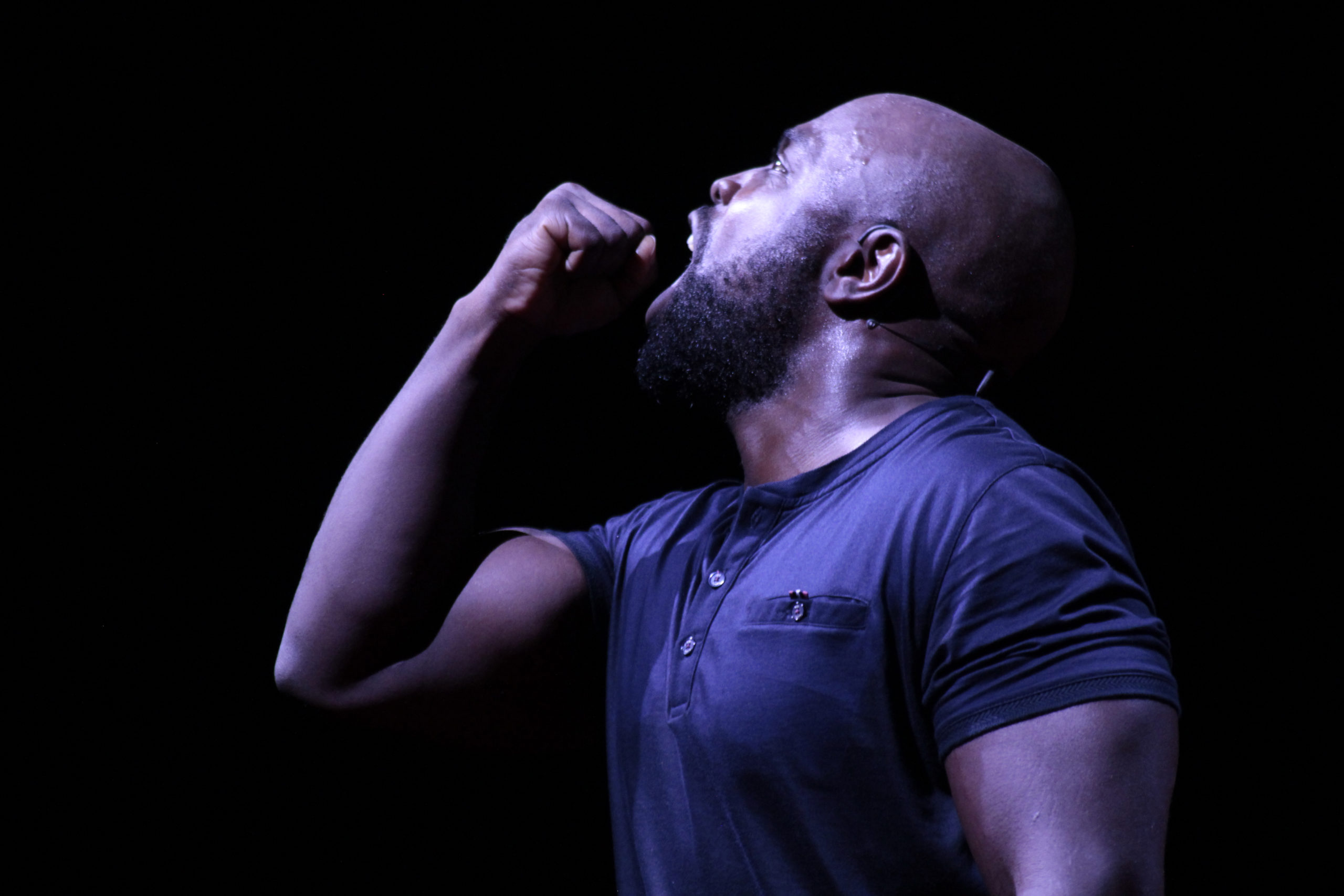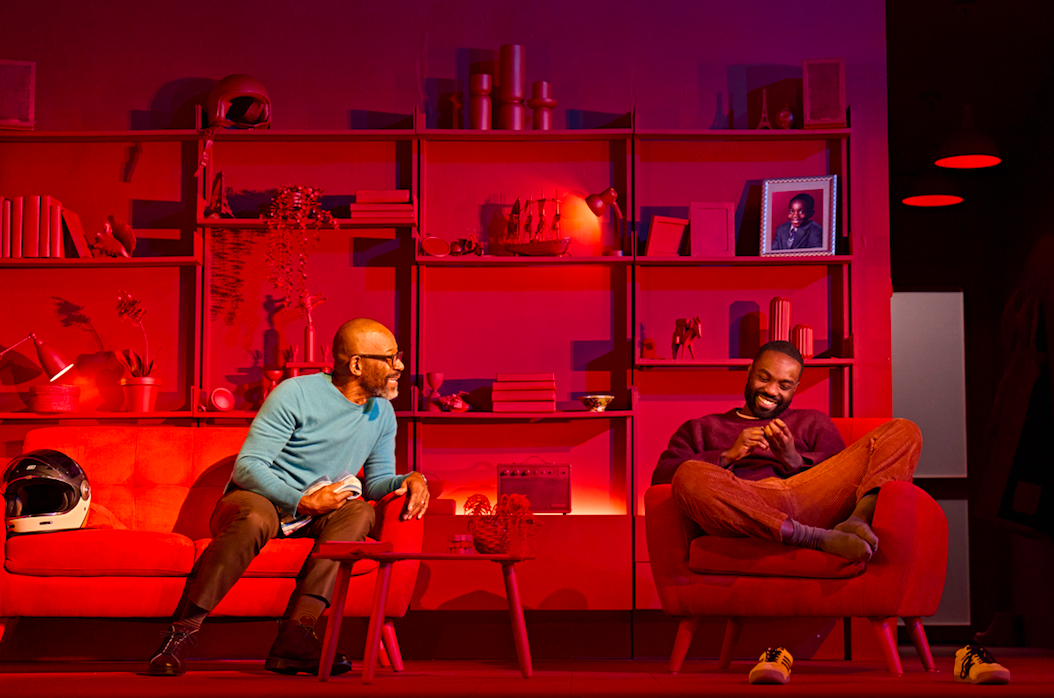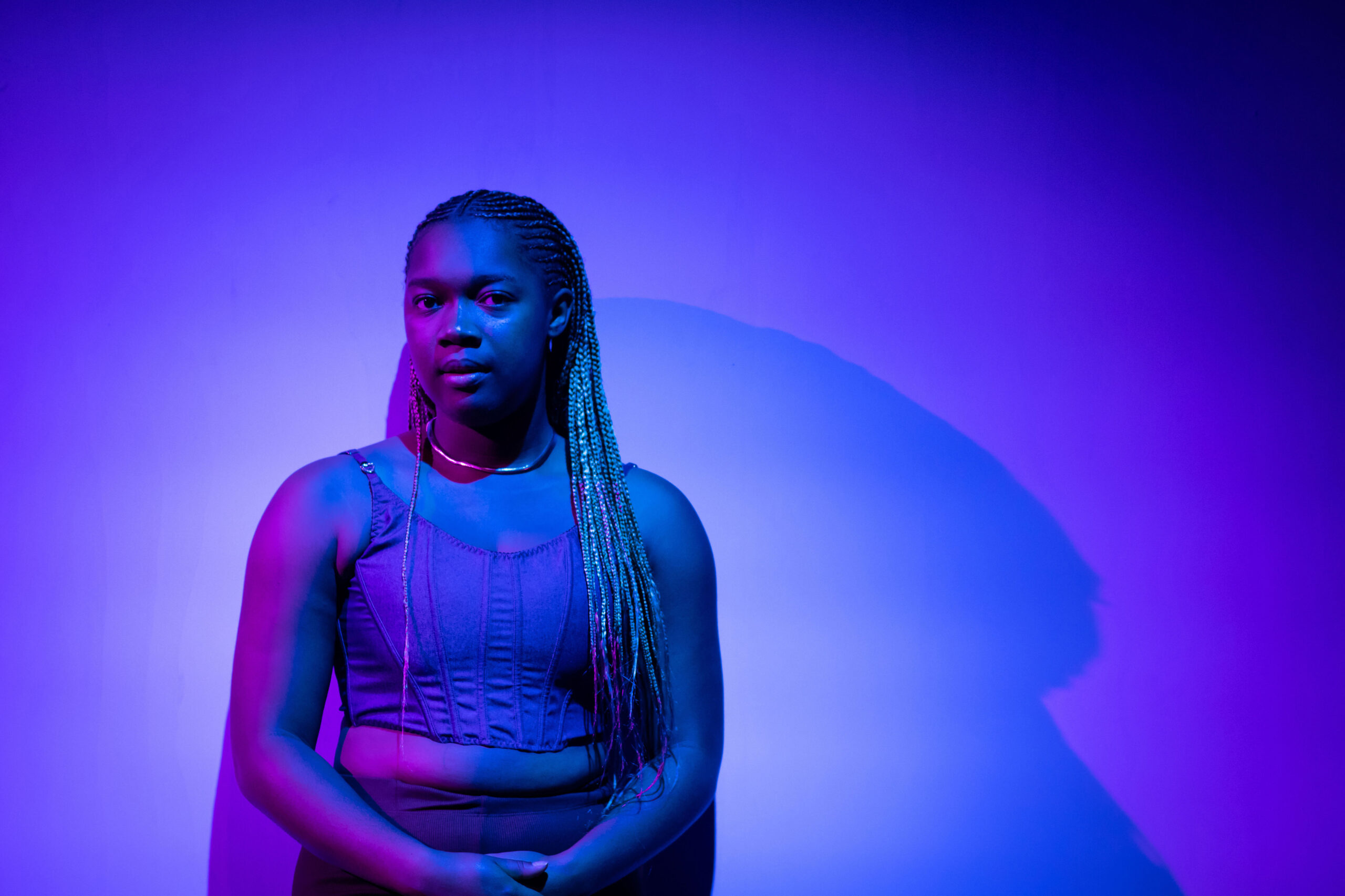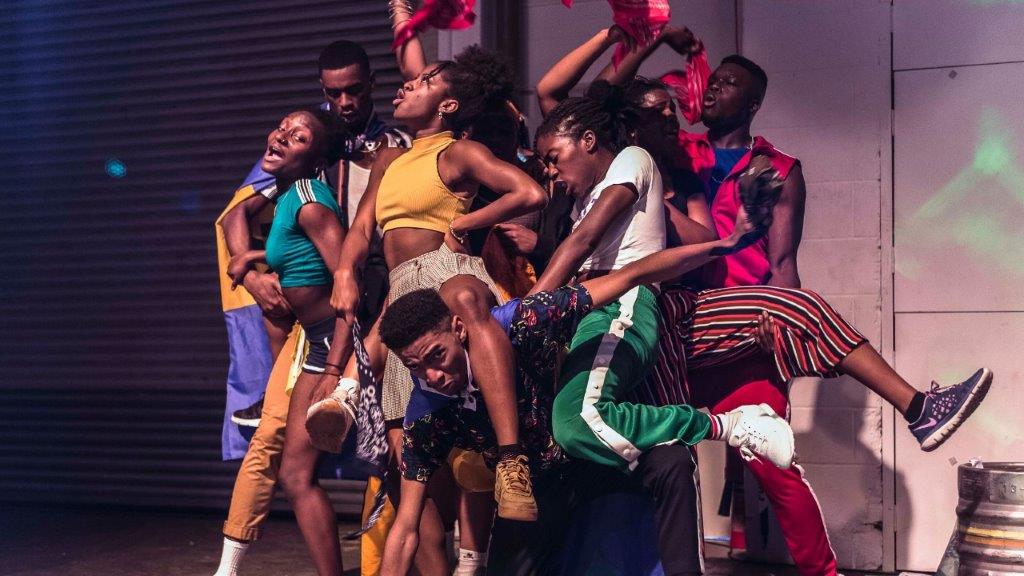
National Theatre’s ‘Death Of England: Delroy’ puts politically confused uncles under the microscope
Closing on its opening night, the one-person play is contextualising what it's like being a Black man in Britain.
Niellah Arboine
05 Nov 2020
Photography by Normski Photography
I’ve really missed the theatre. I promised I would never complain about a three-hour-long play again and would stop turning up just as doors closed. Of course the “new-normal” is anything but. Audiences sit in clusters in their bubbles, and there’s a Covid safety pop quiz on entry. The Olivier theatre had been transformed into a circular stage, lined with perspex to protect us from actor projection droplets, and vice versa.
Going to the opening and closing night of a play in the NT in one sitting isn’t something I thought I’d be doing. But when news hit of a second lockdown, the National, who had just got up and running again with Death Of England: Delroy, was forced to close its doors again on press night.
Created by Roy Williams and Clint Dyer, Death Of England: Delroy is a one-person play and a sequel to February’s Death Of England in the Dorfman. Delroy is the best friend of the first protagonist Michael and is exploring what it is to be black British and working-class in 2020 after he is profiled and arrested. Really it was a cautionary tale, that no amount how well behaved you are or how much you pander to whiteness nothing will save you from racism and the realities of being Black in Britain.
“Going to the opening and closing night of a play in the NT in one sitting isn’t something I thought I’d be doing”
Artistic Director Rufus Norris came out like the prodigal child beforehand, giving a “the arts in 2020” speech. The audience frantically clapped away. But once I kind of let go of analysing how weird it all was, it was pretty easy to get lost in Death Of England: Delroy.
We all know a Delroy. He’s the Black friend white people bring up to win an argument about race. Your problematic uncle you only see at family reunions. A “special Black”, if you will. He’s a second-generation Jamaican, he believes if you work hard enough, have a good job and pay your taxes things are gonna be different for you, you can somehow outrun racism. Delroy is a bailiff who proudly voted for Boris Johnson twice and for Brexit and doesn’t think things are that bad anymore. In fact, he even shuns the Black Lives Matter protests.
Running in an Overground station on his way to see his girlfriend who is in labour, he gets arrested by the police. And then he becomes undone. He’s having a moment many Black Brits had this summer. The realisation that their white friends would let them down, not understand them and ultimately only like them despite their blackness not because of it.
Delroy touched on an interesting display of desire and fetishism between black men and white women. He met his girlfriend (Michael’s sister) when they were 15, and although she says the whole “is it true what they say about black men” line which hurts him, his hormones get the better of him, and now years later they’re still together having a baby. Plot twist, she’s still racist and he still loves her. Through his own love life and lived experiences, we get to understand fetishism a bit more.
“We all know a Delroy. He’s the Black friend white people bring up to win an argument about race”
Michael Balogun gives a stellar performance, filling the stage and bringing all the other characters to life. The writing was super, blending patois and London English in a way so many young black Caribbeans do… and everyone else at this point to be honest.
The set and props were simple but very effective. CCTV cameras represented the police and a statue of Britannia lit up when he spoke about his white girlfriend. A pendant of Nefertiti represented his Jamaican mum who disapproves of his girlfriend and even a golliwog floated down as he talked about the overcompensating Black police officer.
It’s refreshing seeing a Black character who doesn’t have all the answers, one that you don’t agree with on so many things. In many ways, it would be simple to put on a play about a Black person who was “conscious” and aware of how trash this world can be for Black people. But the reality is, he’s not some middle-class academic or even the type of person who would come and see a one-man play at the National. He only knows what is true to him. He voted for Brexit because he thinks Europeans are just as racist. When we say Black people aren’t a monolith, this is what we mean.
It’s a breath of fresh air to see that a play which I think would normally find a home in the Dorfman (read: a Black play) taking up space in Olivier theatre. It might be because of the pandemic or because of the current political climate. Who knows! I really want to believe this isn’t just the Black square of theatre because it deserves to be in the Olivier. It’s proof that the plays I’ve seen in art centres and by smaller theatres by upcoming and talented Black writers are worthy of being there too.
Death Of England: Delroy was a reminder that this fight is for us all, even men like Delroy who proclaim England isn’t that bad these days but are eaten up by the racist comments white people have made in the past to him, even his girlfriend. It feels like the right sort of play to open on NT’s return, even if briefly.









